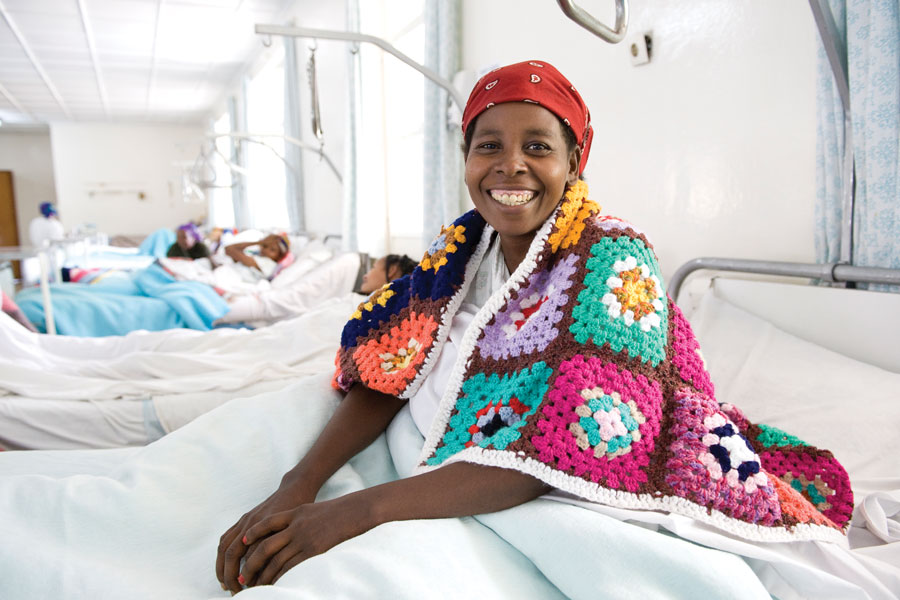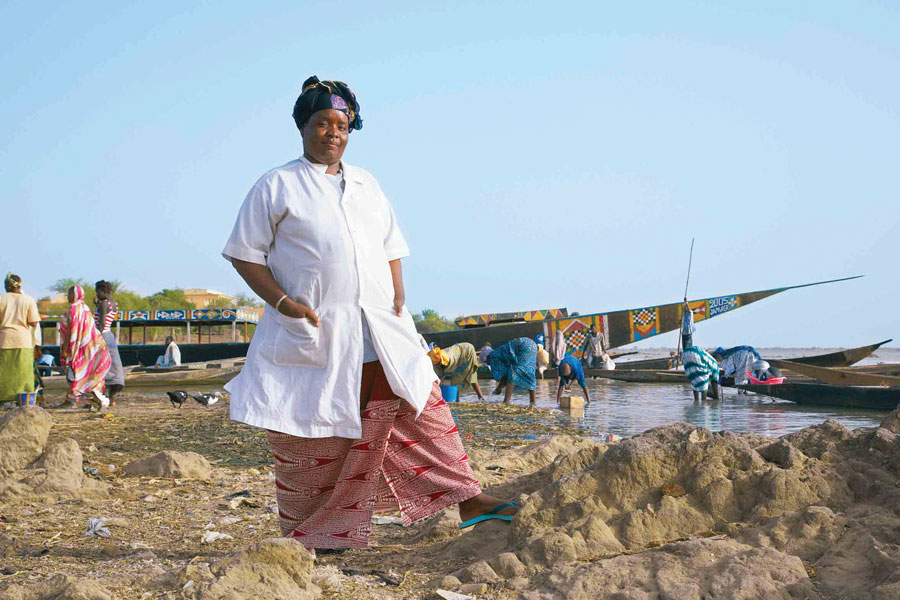Sometimes the world needs to move a little faster, especially when lives are at stake. James Bernstein brushes aside convention and invents a sterile surgery in a suitcase.
Great ideas sometimes start with asking uncomfortable questions. After being told how to treat pneumonia, perform an appendectomy and conduct a physical, Dr. James Bernstein had the audacity to ask “Why?” It was less to do with ignorance and more to do with the urgency he saw around him – the race to treat more than 5 billion people who don’t have access to basic surgery. One day, during his medical studies at Cornell University Medical School (now known as Weill Cornell Medicine), Bernstein overheard a professor – known for his prodigious surgical procedures – replying to a fellow student who had asked why such long waiting periods were required before they could start saving lives. The answer he received: “What’s the hurry?”
“In a world where 5 billion people don’t have access to surgery, it’s a big hurry,” says Bernstein. “I grew up a well-behaved Jewish boy, who went to medical school because that’s what my parents wanted. At medical school you get taught a single idea – that there’s only one way to do things. You’ll hear phrases such as: ‘because this is our way’ or ‘best practice’ – you don’t ask questions; you just do it.”

Bernstein has also performed surgery in India and Peru, where he learned that western medical practices, taught by rote memorization, are not always suitable for different medical environments.
However, Bernstein’s persistence has paid off. He’s now CEO of Eniware, a company that has just developed the world’s first portable sterilizing kit for surgical instruments. The low-cost, power independent unit is no larger than a carry-on suitcase that you’d take on a short business trip and is estimated to cost USD2,000 when commercially available. Each consumable pack, that uses nitrogen dioxide to sterilize the contents of the suitcase and a scrubber to absorb the gas after sterilization is complete, is estimated to costs a mere USD15 – an affordable alternative for rural hospitals in Africa or Asia that lack electricity or sophisticated infrastructure.
“Salk told me that after curing polio he was asked, ‘Why don’t you cure diabetes?”
A common trait among many successful entrepreneurs is their respect and admiration for someone else – whose work has led to groundbreaking innovation. In Bernstein’s case, this inspiration came in the form of Dr. Jonas Salk, who discovered the cure for polio. Salk had complained to Bernstein that the press were never happy with his achievements. “Salk told me that after curing polio he was asked, ‘Why don’t you cure diabetes? Why don’t you cure heart disease? Why don’t you cure cancer?’ He had achieved something huge, that affected billions of people, yet everyone still expected more of him,” recalls Bernstein. “He was depressed by this, but the lesson I learned by working with him was that I should think big too, and also try and affect billions of lives.”
While still at medical school, Bernstein made the “terrible blunder” of going to India, where he performed 50 surgeries, including an open heart surgery at 12,000 feet above sea level, without a heart/lung machine. “You’re not supposed to do that, but I did,” says Bernstein. “It became very clear to me that the best practices of western medicine do not translate well to most parts of the world. It made me realize that we sometimes need alternate ways of doing things.”

The choice of business partner is critical in any successful business, and Bernstein teamed up with Huma Malik, a Pakistan-born project manager and conflict resolution expert. She’s also a skydiver and certified rescue scuba diver – someone Bernstein can trust to handle any situation when transforming the world of surgery in tough environments.
Essential surgery is considered appendectomies, C-sections and repairs to hernias and lacerations. Medical schools involved in global health are finally focusing on this neglected stepchild of surgery, that account for 30 percent of deaths around the world – from procedures gone wrong or lack of sterile instruments. The population in sub-Saharan Africa alone will increase by another one billion people. It’s a big problem, that sometimes requires stories to drive home the reality.
A young, healthy mother in Afghanistan has just given birth via C-section to a beautiful baby girl. However, the instruments weren’t sterile and nine days later she’s dead. In Tanzania, three women give birth naturally – no C-section, no sterile instruments or essential surgery. They now sit with holes between their bladder, rectum and vaginal canal, with tubes going into plastic buckets for the rest of their lives. “It’s called obstetric fistula,” says Bernstein “Very few people have heard of it, yet there are three million women living like this right now. Shocking, tragic and all totally preventable by surgical C-section.” While the lack of C-sections can be blamed on a shortage of surgeons, lack of technology is also to blame. Amazingly, in 1880, Louis Pasteur had already demonstrated that boiling water does not sterilize instruments – it doesn’t kill spores. Yet, in Africa today, boiling water is still used, pre-1880 style.
As with most disruptive technologies, Bernstein initially faced an uphill battle against established medical procedures. He spent much time and money convincing investors that nitrogen dioxide could be a sterilizer.
“Bill Gates once pointed out that innovation doesn’t come from big companies. They don’t get involved with little companies like us because we’re different. We think about the future, not only about today,” he says.
He’s quick to remind us that each of the one billion new people expected in Sub-Saharan Africa represents a birth – in places with no electricity. “It’s been hard raising the USD3.5 million needed to develop our cordless sterilizer,” says Bernstein,“especially when you hear of juicing machines that have raised USD120 million.” Despite the low cost of Eniware’s sterilizer kit, the team is convinced that the shared value enterprise they’ve put in place between investors and end-users will pay handsome dividends to those who’ve backed them. A potential market of 5 billion people is not an insignificant number. “We initially didn’t get any help from the big companies, but they’re all interested now. We stuck our necks out and came out with the disruptive technology that would change surgery in the developing world.”
In Africa last year Bernstein presented a demo model to a nurse in a rural hospital. “She looked at it, and said, ‘Go away, leave now.’ I thought I’d violated some local custom,” he recalls “But she looked at me and said, ‘Dr Bernstein, we need this sterilizer so badly we can’t have you standing here talking any longer. Go away and don’t come back until you bring us one.”




































